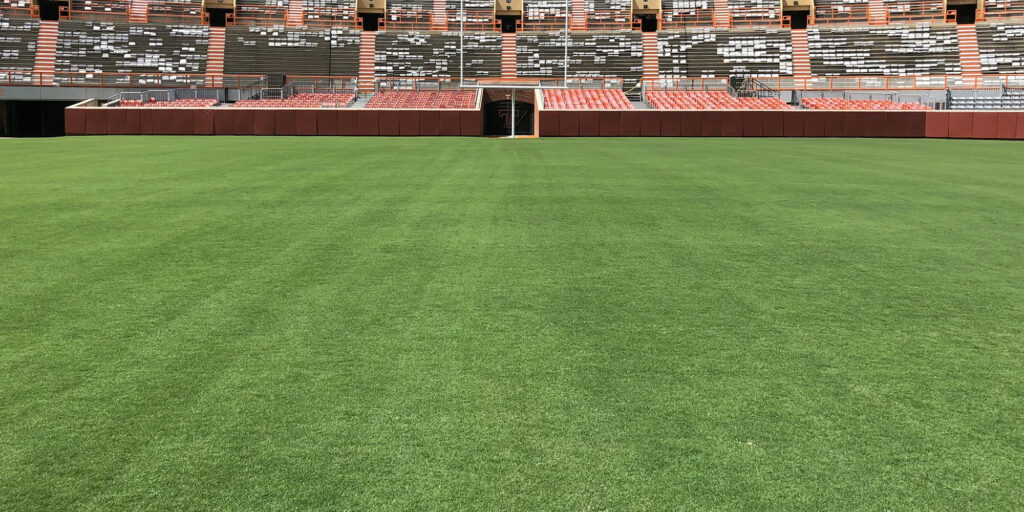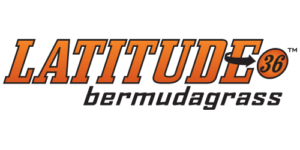

Spring Into Football: Discovering Neyland Stadium’s Latitude 36® Bermudagrass Advantage
In the quest for a bermudagrass variety that thrives in the East Tennessee climate, the University of Tennessee selected Latitude 36® for Neyland Stadium in May 2018 for its adaptability and color retention. This decision came after extensive research into various bermudagrass types. The priority was finding a new grass variety that would retain its greenness throughout the seasons for the football stadium and practice field.
The University of Tennessee’s Director of Sports Surface Management, Darren Seybold, shared insights into the benefits observed since the switch to Latitude 36® and explained why it’s his favorite bermudagrass variety. “Over the past six years, we’ve gotten comfortable with it. We know what it can and can’t take. We’re in the first week of March and our non-overseeded grass has already started to green up. It goes into dormancy for us a lot later too, which helps a lot as our football season continues to grow. Because of the playoffs, we understand that’s gonna be a big commitment for us to stay greener longer.”
He said the athletes and coaches are complimentary about how the field looks and performs.
Seybold highlighted the crew’s intensive fall turf management strategy, focusing on aggressive mowing, sweeping for thatch removal and minimal overseeding, as preferred by the coaching staff. “We’ve learned that if we can broom it in the fall and get that little bit of thatch out, it (the color) lasts longer. We just did it today on our practice fields and just getting that old material out, there’s so much green popping back through. We top dress more than most and mow it to a half inch.”
The grass’s dark green hue and fine texture boost Neyland Stadium’s aesthetic appeal and satisfy the functional demands of a high-quality sports field, ensuring it remains visually appealing for back-to-back games. “That’s just a big factor when you have millions of eyes on you every weekend, just to have that knowledge in your head that you’re going to be fine.”
Seybold explained that the athletes don’t have to worry about the field, knowing they will have a stable playing surface each week and can make cuts or fast movements with no issues on the Latitude 36.
In addition to loving Latitude 36 for its playability and recovery from game-day wear and tear, the grass’s resilience was tested inside Neyland Stadium during a Garth Brooks concert in November 2019 and again when fans stormed the field after upsetting Alabama in October 2022. They didn’t resod the field after either instance. Seybold said aside from repairing a patch of grass a woman cut out of the field following the Alabama defeat, they just aerified and swept Neyland for the game the next weekend.
Seybold has worked at the University of Tennessee for 14 years and said he gives all the credit to his team of dedicated people.
Latitude 36®, developed by Oklahoma State University, stands out for its cold hardiness, high traffic tolerance and exceptional tensile strength, making it an ideal selection for the rigorous demands of collegiate sports. Learn more at Latitude36Bermuda.com.
For more insights and an in-depth look at the Latitude 36 at Neyland Stadium, hear what Seybold had to share about the grass in the fall of 2018:
This article was written by Cecilia Johnson.

